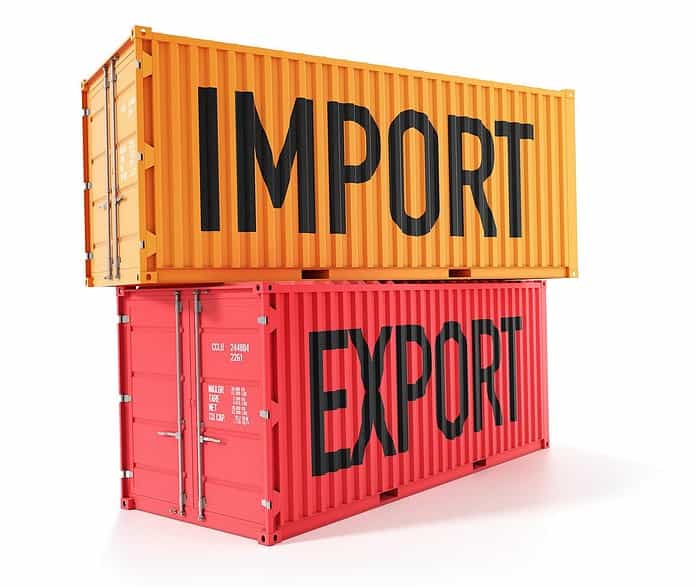Last Updated on October 6, 2024 by The Health Master
Track and trace systems in drug exports
Drug exports: The Indian government has announced that the implementation date for the track and trace system for drug exports has been extended until August 1, 2023.
This applies to both non-Small Scale Industry (SSI) and SSI-manufactured drugs.
Here are the key details:
Date Extension:
- The implementation date for the track and trace system for drug exports has been extended until August 1, 2023.
- This extension is applicable to both SSI and non-SSI manufactured drugs.
- The decision was made by the Directorate General of Foreign Trade (DGFT) and communicated through a public notice.
Track and Trace System for Drug Exports:
- Manufacturers and exporters of drug formulations must print barcodes at different packaging levels—primary, secondary, and tertiary—as per global standards to enable the tracking and tracing of their products.
- The barcode system helps to track and trace the origin of drugs, reducing the chances of genuine medicines being considered spurious, substandard, or counterfeit.
Previously, the implementation date for the track and trace system for drug exports had been extended from time to time.
With this latest extension, drug manufacturers and exporters will have more time to prepare for the implementation of the track and trace system, ensuring the quality and authenticity of drug exports from India.
FAQs on drug exports from India:
1. What are drug exports?
Drug exports refer to the international sale and shipment of pharmaceutical products from one country to another for various purposes, including medical use, research, and commercial distribution.
2. Can all drugs be exported without restrictions?
No, not all drugs can be exported freely. Some drugs may be subject to export restrictions or require special permits due to their nature, potential for abuse, or international agreements.
3. Are there specific labeling requirements for exported drugs?
Yes, exported drugs usually need to have clear and compliant labeling that meets the requirements of both the exporting and importing countries. This includes information on ingredients, dosage, and safety warnings.
4. What documents are needed for drug export?
Commonly required export documents include a Certificate of Analysis, a Certificate of Origin, a Bill of Lading, a Packing List, and the necessary licenses or permits.
5. How are drug quality and safety ensured during export?
Quality and safety are maintained through adherence to Good Manufacturing Practices (GMP) and compliance with international quality standards. Regular inspections and audits are conducted to ensure product integrity.
6. Can pharmaceutical companies export experimental drugs for clinical trials?
Yes, pharmaceutical companies can export experimental drugs for clinical trials, but this process is highly regulated and requires approval from regulatory authorities.
7. Are there export incentives for drug manufacturers?
Some countries may offer export incentives, tax benefits, or subsidies to pharmaceutical companies to promote drug exports and boost their competitiveness in the global market.
8. What are the key regulations governing drug exports from India?
Drug exports from India are primarily regulated by the Central Drugs Standard Control Organization (CDSCO) and the Directorate General of Foreign Trade (DGFT).
9. Are there specific licensing requirements for exporting pharmaceuticals from India?
Yes, pharmaceutical exporters in India typically need to obtain an Import-Export Code (IEC) from the DGFT. Additionally, specific licenses and permits may be required for certain types of drugs or destinations.
10. Can Indian pharmaceutical companies export to the United States and the European Union (EU)?
Yes, Indian pharmaceutical companies can export to the U.S. and EU markets. However, they must comply with stringent regulatory requirements, including approvals from the U.S. Food and Drug Administration (FDA) and the European Medicines Agency (EMA).
11. What is the role of the Export Promotion Council for Pharmaceuticals (Pharmexcil)?
Pharmexcil is an organization that promotes and facilitates pharmaceutical exports from India. It provides various services and supports Indian pharmaceutical exporters.
12. Are there tax incentives or benefits for pharmaceutical exporters in India?
India offers various export incentives and tax benefits to pharmaceutical companies to encourage drug exports. These incentives can include the Duty Drawback Scheme and the Export Promotion Capital Goods (EPCG) Scheme.
Disclaimer: This article contains information derived from ET Healthworld. Our team utilized an AI language model, to rewrite and present the news / article in a unique format.
Bar code or QR code: Govt issues draft Rule to mandate on label of top 300 brands of drugs
Pharma Industry to Ministry: Launch portal for QR codes for top 300 drug brands
QR code on APIs – Active Pharmaceutical Ingredients
QR code could curb circulation of fake, spurious and substandard medicines
Mandatory QR codes on APIs: Benefit or burden,
The mandatory QR codes on APIs
Govt mandates QR code on labels of all APIs manufactured and imported
USFDA issues Form 483 with zero observation to Piramal
Nutraceutical Industry: Opportunities and Measures for India
Pharmacopoeia standards for Ayurveda, Siddha, Unani & Homoeopathy drugs: Soon
Drug alert: 59 out of 1251 samples declared as NSQ in February 2023
Calibration of Laboratory Instruments
Drug recall: 50,000 contaminated eye drops recalled
Glutathione: Lets talk about its dose and health benefits
NPPA fixed retail price of 25 formulations: March 2023
Difference: Disintegration and Dissolution test in pharma industry










